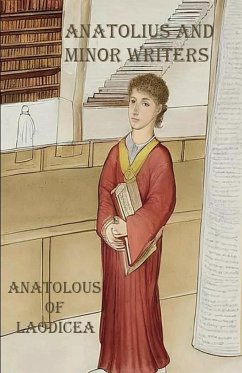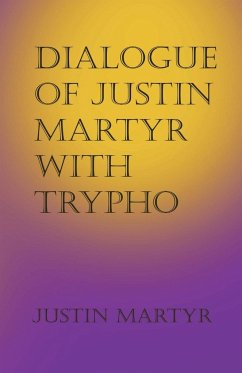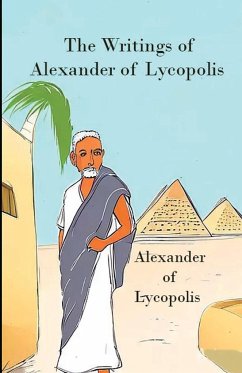[a.d. 230-270-280.] From Jerome we learn that Anatolius flourished in the reign of Probus and Carus, that he was a native of Alexandria, and that he became bishop of Laodicea. Eusebius gives a somewhat lengthened account of him, and speaks of him in terms of the strongest laudation, as one surpassing all the men of his time in learning and science. He tells us that he attained the highest eminence in arithmetic, geometry, and astronomy, besides being a great proficient also in dialectics, physics, and rhetoric. His reputation was so great among the Alexandrians that they are said to have requested him to open a school for teaching the Aristotelian philosophy in their city. He did great service to his fellow-citizens in Alexandria on their being besieged by the Romans in a.d. 262, and was the means of saving the lives of numbers of them. After this he is said to have passed into Syria, where Theotecnus, the bishop of Cæsareia, ordained him, destining him to be his own successor in the bishopric. After this, however, having occasion to travel to Antioch to attend the synod convened to deal with the case of Paul of Samosata, as he passed through the city of Laodicea, he was detained by the people and made bishop of the place, in succession to Eusebius. This must have been about the year 270 a.d. How long he held that dignity, however, we do not know. Eusebius tells us that he did not write many books, but yet enough to show us at once his eloquence and his erudition. Among these was a treatise on the Chronology of Easter; of which a considerable extract is preserved in Eusebius.
Hinweis: Dieser Artikel kann nur an eine deutsche Lieferadresse ausgeliefert werden.
Hinweis: Dieser Artikel kann nur an eine deutsche Lieferadresse ausgeliefert werden.








